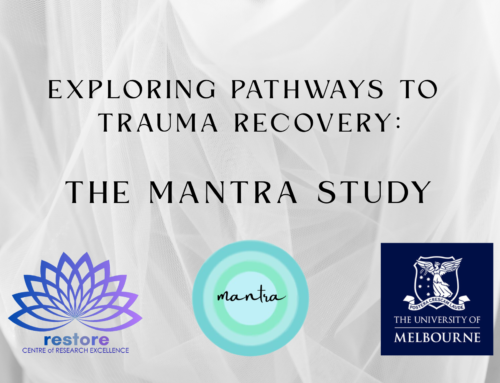Self-compassion and changing your critical self-talk – Part 2 By Dr Alla Demutska (Insight Psychology Centre) and Dr Richard Chambers
What is self-compassion?
We tend to be much kinder to others than ourselves. Most people, when faced by the suffering of someone they care about, respond with patience, acceptance and presence. We might offer words of reassurance or just an acknowledgement of the suffering, or we may even remain silent and just bring a loving presence. Perhaps we might also hug or touch the person, bringing a soothing physical presence too.
But when it’s us who is suffering, there can be a tendency to respond differently. We may be more inclined to become impatient and judgemental, and that self-critical voice tends to show up. Self-criticism is often an attempt to motivate ourselves, avoid repeating mistakes and protect relationships (by not hurting or disappointing others). So it is there for a reason – and often develops to serve an important function in our lives*.
But at what cost? If we pay close attention, we start to notice that self-criticism tends to make us feel bad and saps our self-worth. Whatever has triggered the self-criticism also takes on an unpleasant tone and we are tempted to avoid it entirely. Even if we do stay focused on the problem, self-criticism activates the fight/flight response meaning we get flooded with stress hormones and our mind becomes distracted and scattered. As a result, we have difficulty seeing clearly and acting effectively to resolve the issue.
Self-criticism is sometimes referred to as the “second arrow”. This metaphor points to the fact that when we get shot with the arrow (suffering) – whether this be a mistake, failure, setback, illness or some other difficulty – instead of tending to the wound, we often shoot ourselves with a second arrow (self-criticism). So now we have two arrows in us. And then, to make matters worse, we might notice that we are being self-critical and get annoyed with ourselves for doing this – thereby shooting ourselves with a third arrow!
Kristin Neff identified three components of self-compassion. These are:
- Mindfulness (vs overidentification)
- Common humanity (vs isolation)
- Self-kindness (vs self-judgement)
In this context, mindfulness refers specifically to responding to our own suffering in a balanced way. Rather than avoiding our suffering or getting bogged down in it through rumination or catastrophisation (over-identification), we cultivate awareness of how we are feeling and how we are responding to ourselves. Mindfulness helps us to become more self-compassionate first by noticing the effects of self-criticism and then letting go of judgement and stories and instead learning to recognise things the way they are.
The second component, common humanity, refers to acknowledging that it is just part of being human to experience suffering. Often when we are facing difficulties and setbacks, and particularly when that self-critical voice starts up, we can feel quite alone. We may start to feel like it’s only us who is suffering, and think that everybody else has somehow just got together. This is especially easy because most people hide their suffering from others because they feel ashamed or inferior in some way. When we recognise that experiencing difficulties and suffering is part of the common human experience, our suffering become something that unites us with others rather than separates us.
Finally, self-kindness means simply being kind and loving to ourselves when we are suffering. This is very different to the self-criticism and self-judgement that we normally react to our failures and difficulties with. With self-kindness, we treat ourselves like we would treat someone we love who is going through a similar experience. Rather than getting caught up in blame or criticism or questioning whether we deserve kindness, we offer kindness to ourselves simply because we are suffering.
Changing your critical self-talk
This exercise should be done over several weeks, and will eventually form the blueprint for changing how you relate to yourself long-term. Some people find it useful to work on their inner critic by writing in a journal. Others are more comfortable doing it via internal dialogues. If you are someone who likes to write things down and revisit them later, journaling can be an excellent tool for transformation. If you are someone (like me) who never manages to be consistent with a journal, then do whatever works for you. You can speak aloud to yourself, or think silently.
- The first step towards changing the way to treat yourself is to notice when you are being self-critical. It may be that – like many of us – your self-critical voice is so common for you that you don’t even notice when it is present. Whenever you’re feeling bad about something, think about what you’ve just said to yourself. Try to be as accurate as possible, noting your inner speech verbatim. What words do you actually use when you’re self-critical? Are there key phrases that come up over and over again? What is the tone of your voice – harsh, cold, angry? Does the voice remind you of any one in your past who was critical of you? You want to be able to get to know the inner self-critic very well, and to become aware of when your inner judge is active. For instance, if you’ve just eaten half a box of Oreo’s, does your inner voice say something like “you’re so disgusting,” “you make me sick,” and so on? Really try to get a clear sense of how you talk to yourself.
- Make an active effort to soften the self-critical voice, but do so with compassion rather than self- judgment (i.e., don’t say “you’re such a bitch” to your inner critic!). Say something like “I know you’re trying to keep me safe, and to point out ways that I need to improve, but your harsh criticism and judgment is not helping at all. Please stop being so critical, you are causing me unnecessary pain.”
- Reframe the observations made by your inner critic in a friendly, positive way. If you’re having trouble thinking of what words to use, you might want to imagine what a very compassionate friend would say to you in this situation. It might help to use a term of endearment that strengthens expressed feelings of warmth and care (but only if it feels natural rather than schmaltzy.) For instance, you can say something like “Darling, I know you ate that bag of cookies because you’re feeling really sad right now and you thought it would cheer you up. But you feel even worse and are not feeling good in your body. I want you to be happy, so why don’t you take a long walk so you feel better?” While engaging in this supportive self-talk, you might want to try gently stroking your arm, or holding your face tenderly in your hands (as long as no one’s looking). Physical gestures of warmth can tap into the caregiving system even if you’re having trouble calling up emotions of kindness at first, releasing oxytocin that will help change your bio-chemistry. The important thing is that you start acting kindly, and feelings of true warmth and caring will eventually follow.
Carl Rogers “The curious paradox is that when I accept myself just as I am, then I can change”
Explore mindfulness and mindful self-compassion practices during week long retreat on a beautiful island of Koh Phangan, Thailand with Dr Alla Demutska and Dr Richard Chambers (31 August – 8 September). Take time off to focus on improving your quality of life and to slow down, build your resilience and connect with yourself. You will also learn powerful tools that will help you focus, be more self-aware and improve your life long after the retreat has ended.
For more information go to http://www.tworiversretreat.com/
You can also get help by accessing psychology sessions in Kundalini house. Please call Insight Psychology Centre 0476 131 281
Suggestions outlined in this article are not a substitute for therapy.
If this is an emergency, please dial 000.
If you need to speak to someone urgently, please contact your local Crisis Assessment and Treatment Team (CATT) http://www.health.vic.gov.au/mentalhealthservices/adult/









Leave A Comment